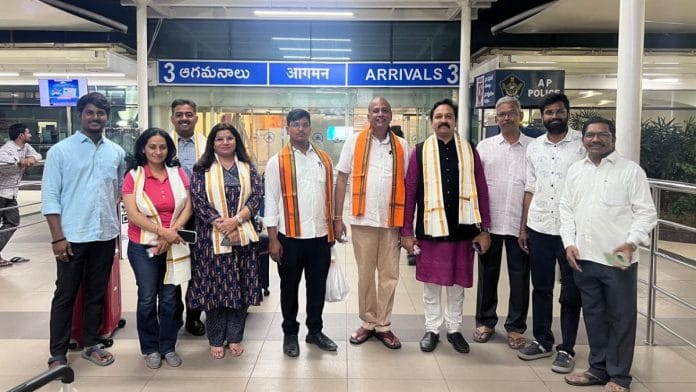New Delhi: Calling for reforms in India’s judicial system, the Akhil Bharatiya Adhivakta Parishad (ABAP) concluded a two-day conference of its national executive in Vijayawada, Andhra Pradesh, last week with a resolution advocating for greater transparency in judicial appointments.
“The recent incidents in the higher judiciary have once again shocked the nation…While protecting the independence of judiciary, one must not lose sight of the accountability—accountability not to the conscience of each individual but to the society through a permanent mechanism which is transparent and verifiable,” the ABAP said in a statement without giving details.
Extensive discussions were also held on the implementation of the National Judicial Appointments Commission (NJAC) at the conference held on 12–13 April.
The NJAC, struck down by the Supreme Court in 2015, was meant to replace the existing collegium system of appointing judges to the higher judiciary. It again became the centre of discussions after unaccounted-for cash was allegedly found at the residence of a Delhi High Court judge, Justice Yashwant Varma, raising questions over transparency and judicial accountability.
Among a series of demands made by the ABAP national in the statement, it called for “a new legislation be brought forthwith to see that the process of appointment and overseeing judicial conduct is done in a more transparent manner, while taking care to see that the judiciary will have a major say in this process”.
Established in 1992, the ABAP, also known as the All India Lawyers’ Council, is a right-wing legal organisation, comprising seasoned legal professionals affiliated with the Rashtriya Swayamsevak Sangh (RSS). It seeks changes in India’s judicial system that reflect Hindu cultural and traditional values.
Most inclusive conference
Among its other demands, the organisation pushed for the immediate establishment of a standing oversight committee, comprising retired chief justices and other eminent jurists, to ensure judicial accountability and to implement the Bengaluru Declaration in a concrete, verifiable manner.
Representatives from every high court in India attended the conference held on 12–13 April, making it one of ABAP’s most inclusive gatherings to date.
Senior advocates, sitting and former law officers, including additional solicitor generals and former advocate generals, took part in deliberations, reflecting the legal community’s growing concern over transparency, judicial integrity, and structural reform.
ABAP also emphasised the need for the long-pending Advocates Protection Act, 2021, aimed at protecting advocates from violence and other harms, and called on the Supreme Court to remove existing restrictions on filing complaints against judges of the higher judiciary before June 2025.
In another significant resolution centered on preventing conflict of interest, the ABAP demanded that high court judges be transferred if their close family members are practicing within the same jurisdiction, while family members of sitting Supreme Court judges should not be allowed to practice in the apex court until the judge retires.
On the issue of post-retirement roles, ABAP proposed a mandatory three-year cooling-off period before judges can accept any government appointment or arbitration cases. Additionally, the conference called for a uniform retirement age across the judiciary and urged that at least one-third of high court judges be drawn from outside their home states—partially implemented during the tenure of former Chief Justice of India M.N. Venkatachaliah.
Further pushing for transparency, the conference demanded that judges and their immediate families declare assets annually, with these disclosures made public on official court websites.
Apart from judicial reforms, the conference also took up other pressing legal concerns, particularly the proposed amendments to the Motor Vehicles Act and the legal recognition of religious certifications, particularly HALAL certification, calling for greater scrutiny and clarity on such practices.
(Edited by Sanya Mathur)







At any cost judiciary independence should be protected